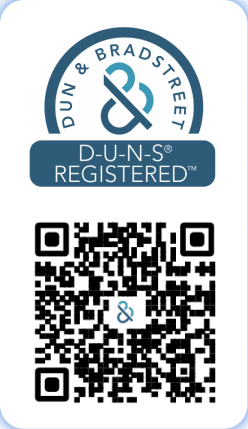Are you confused about what exactly a Group Discussion is or nervous about cracking one? If yes, then this blog is the right place for you.
A group discussion, abbreviated as GD, is one of the most common screening tools used today in interviews for jobs and educational institutions. Here we have broken down the entire concept of a Group Discussion, its basics, the process and top tips and tricks to stand out from the crowd in a GD.
Read till the end to find a curated guide of how to crack a GD from our expert counselors!!
What is a Group Discussion or GD?
In the simplest terms, a group discussion is a conversation with two or more individuals, i.e. a group, on a topic. But the concept of a GD is much more nuanced today than this. But today, a GD is not simply any discussion among a group of individuals, but is one of the most common screening tools for hiring individuals or admitting students to an educational institution.
It can be defined as a purposeful interaction among a group of people sharing a common interest, about a specific topic to make comments, share opinions, or arrive at solutions.
Key Areas that were Discussed in a Group Interview
- Communication Skills: Your skill in making yourself understood.
- Teambuilding: The ability to cooperate with other people and respect diversity of opinion.
- Leadership: Becoming leadership and guiding the talk. The manner you tackle and solve complex problems is termed as problem-solving.
- Listening Skills: The ability to listen and respond to those of other people.
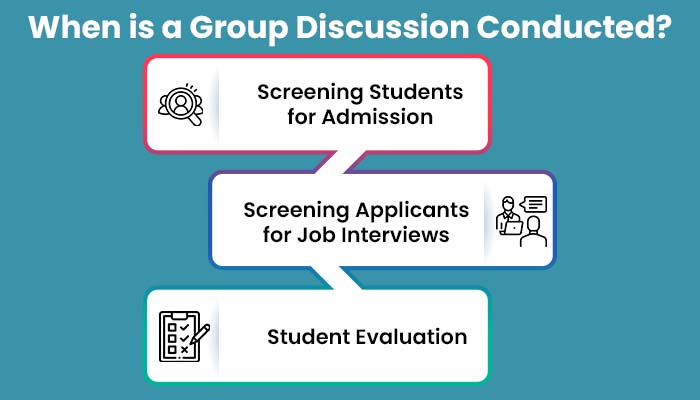
The Objectives of the Group Discussion Round
The key objectives of a group discussion round are the following:
- Evaluating correspondence ability: Evaluation of the level of how well individuals listen to others and how they express their ideas.
- Analytical Abilities Testing: Assessing the critical reasoning and perspective-taking ability of the participants.
- Observing Leadership Qualities: It is also called the element of searching the personalities that are able to motivate other people and lead discussions.
- Encouraging Teamwork: Fostering cooperation and respecting differences of opinion, and aiming towards achieving one common goal are some of the ways of encouraging teamwork.
- Evaluating of Decision-Making Skills: Evaluating the ability to make well-proven judgments based on a range of perspectives is referred to as the decision-making skills evaluation.
Types of GD
When you are going in for a group discussion, whether for a job interview or educational interview, it is a good idea to know about the types of GD and form a common expectation about which type to expect. Here we have listed the common types of GD:
- Factual GD: This is one of the common types of GD, in which the main topics for discussion are factual, such as based on current fairs, technicalities of a field or specific knowledge domains. These are used to test the depth of knowledge of the candidate as well as to evaluate how updated they are about day-to-day happenings around them. These GDs are commonly used in technical fields.
- Case Study-Based GD: in this type, the topics of the group discussion are based on specific case studies and members of the group are expected to put forward their analyses as well as critiques, and solutions to the case. This type is commonly used when the evaluators want to assess the analytical as well as critical skills of the candidates as well as the ability to apply conceptual learning to practical skills. These are especially common in GDs in the fields of business and management.
- Opinion-Based GD: In this type, the aim again is to evaluate the analytical and judgement skills of the candidate. The topics are about relevant issues of life and candidates are expected to share their opinions about the situation as well as draw effective conclusions. These are commonly used in GDs for job roles such as journalism, mass communication or other liberal arts.
- Abstract GD: As the name suggests, these GDs involve an abstract topic, and the main aim is to evaluate the abstract and original thinking of the clients. These GDs may be common in interviews for creative job roles and fields related to liberal arts as well as the ones which require analysis. The analytical skills of the candidate are also evaluated in such GDs.
- Technology and AI-Oriented GD: AI and rapid digitalization explain why many organizations develop GDs dedicated to technology trends, AI ethics, digital privacy, the future of work and so on. These test not only technical familiarity and reflective thinking along the lines of the effects of technology on society but also concentration abilities.
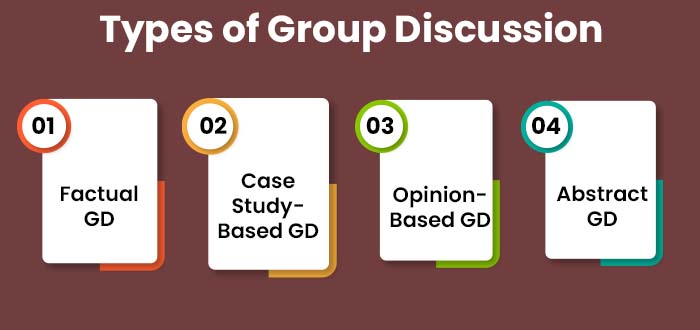
Here we have summarised the basic characteristics of these types of GDs.
| Type of GDs | Main Focus of Evaluation | Commonly Used In |
| Factual GD | General Knowledge
Depth of Knowledge Technical Knowledge & Skills |
Technical Fields |
| Abstract GD | Analytical Skills
Creativity Abstract Reasoning Lateral Thinking |
Creative Job Roles, Fields Related to Liberal Arts |
| Case Study-Based GD | Analytical Skills
Critical Skills Ability to Arrive at Solutions Practical Application of Concepts |
Business, Management Job Roles, Administrative Interviews |
| Opinion-Based GD | Reasoning Skills
Evaluation Skills Analytical Skills |
Job Roles requiring Reasoning, Persuasion, Analysis |
| Technology & AI-Focused GD |
|
Tech Companies, Startups, Digital Transformation Roles |
Dos and Don’ts in a Group Discussion (GD)
Top DOs in a GD
When going for a Group Discussion, there are certain considerations to be kept in mind that will prove helpful for excelling in it.
Some of the top dos for a GD are given here:
- Briefly introduce yourself and the idea you are about to present in the discussion.
- Try to take the lead in the conversation if you know the topic well.
- Introduce new but topic-relevant perspectives and ideas in the discussion.
- Always stay relevant to the topic of the GD.
- Use facts and figures to support your ideas and make them stronger.
- Do your research before appearing for the GD, try to prepare yourself for the topic if known beforehand.
- Organise your main ideas and perspectives before speaking.
- Use easy-to-understand language, correct grammar and a clear diction.
- Present Multiple points of view on the topic.
- Remember to have an engaging body language-make eye contact with the members of the group, nod occasionally while listening to others, and face the members of your GD.
- Maintain a straight posture.
- Be dressed in formal, decent and smart attire.
- Maintain a confident tone and stance in the conversation.
- Be respectful while counteracting or criticising a point made by another member of the group.
- Only engage in constructive criticism of an idea.
- When the discussion is drawing towards the end, try to summarise all the presented ideas and conclude the discussion.
- Keep abreast of the latest digital trends and AI advancements, as these points gain more and more currency.
- Be an active digital literate know the credibility of the sources that you quote.
Top Don’ts in a GD
Some of the most common mistakes to avoid while in a GD are given here:
- Don’t jump into the conversation if you don’t have a solid point to put forth.
- Don’t present or quote incorrect or confusing facts and figures if you are not sure about them.
- Don’t take the lead if you are not sure about an idea.
- Don’t steal others ideas or reiterate their perspectives without any insights of your own.
- Don’t use jargon or complex language. Speak in simple but formal language.
- Don’t interrupt others to put in your ideas.
- Do not overspeak while others are presenting their points of view.
- Do not be harsh/rude/argumentative while criticising others.
- Don’t get personal while criticising or counteracting someone.
- Don’t use an aggressive or excessively loud tone as it may put others off.
- Don’t derail from the topic of conversation and avoid contributing irrelevant ideas to the discussion.
- Don’t over-gesticulate, although using some hand gestures while speaking is recommended.
- Don’t be slouched or appear disengaged in the conversation (not speaking, not facing others, having arms crossed across the chest, maintaining a negative facial expression etc.)
- Don’t present controversial or judgemental or stereotypical ideas in the conversation as it may create a very negative impression upon the members and evaluators.
- Don’t speak to the evaluator, rather focus on participating in the conversation as a member of the group.
- You should not fully trust the information generated by AI without verifying it exhibit critical thinking.
- Technology issues should never be discounted as unimportant - posit the good and the bad.
Tips and Tricks to Excel in a Group Discussion (GD)
Here, we have provided insights related to some of the top tips and tricks to crack a GD.
- Don’t Underestimate your Attire
Many candidates do not pay attention to the attire while speaking of a GD. While it is not the utmost aspect of a GD, many research studies have pointed out that the attire is one of the first key components that helps create a first impression and can make you stand out in a group. Candidates should wear smart and decent formal outfits, and too bright colours (e.g. neons or other bright colours) should be avoided. The aim is to be smartly and professionally well-groomed.
- Prepare in Advance
One of the key aspects to excel in a GD is to be prepared before participating in one. Based on the type of interview you are going to appear for (government job entrance or educational interview or regular job interview etc.), you can prepare some ideas on commonly asked topics of GD. Research is the key to excelling in a GD, as it helps you gain knowledge, be aware of the key aspects of the topic and use it to gain leverage over other members.
Additionally, if you already know the topic of the GD beforehand it is a good start to do a thorough research and study on the topic before appearing for the GD.
- Use Facts and Research
The use of facts, figures and research findings enhances the credibility of your ideas, which means you gain an authority in the discussion in a way. So it is always recommended to support your ideas and perspectives with some supporting study findings or facts or figures.
HOWEVER, DO NOT PRESENT INACCURATE FACTS AND FIGURES TO SUPPORT YOUR IDEAS.
- Focus on Body Language and Gestures
The use of an active and engaging body language can be helpful and can help you form a positive impression on the other members of the group as well as the evaluator. You should maintain a straight posture, face the speakers while listening and express that you are engaged in the discussion. Maintaining eye contact with others while speaking, nodding while listening etc. can be helpful.
Use hand gestures occasionally to emphasise your ideas and perspectives, but be mindful that you don’t over-gesticulate as it may be distracting and may take the focus away from what is being spoken by you.
- Role of Original Ideas
This is an area to pay attention to. In most GDs, one the prime aspects being evaluated is whether you have original, insightful ideas to contribute to an issue/topic. Creativity is also noted in many GDs. Hence, it is important that while speaking, you put forth original and creative ideas into the conversation. And in order to be able to do so, you can research common topics, issues, current affairs etc. to develop your own insights about a diverse range of subjects.
- Take the initiative to steer the conversation
Broach the topic yourself when you have an opportunity, or deflect it to the correct direction when you do not. Being in the lead, you demonstrate that you are skilled leader who can regulate the discussions and is ready to encourage fair participation of all group members ensuring that everyone is given a chance to express their opinions.
- Focus on the Topic of Discussion
In many cases, a GD can derail from the initial topic of the discussion or may get static on an aspect which is not central to the topic. When you see this happening, you can try to bring the focus of the conversation back to the main issue without interrupting others or letting them put forward their ideas. This communicates to the members and evaluators that you can effectively strategize and bring the focus back on the problem in hand as well as direct a group’s path of discussion by taking a lead.
- Include Examples to make Arguments.
When proving your claims, use relevant information, anecdotes, facts or real life examples. It makes sense that your arguments are more powerful and persuasive when supported by concrete data and this is a sign that you know and have something to prove.
- Find Solutions over Criticisms
While it is important to present criticisms or counter points about an issue, the aim should be to present a balanced perspective. Moreover, rather than just focusing on the problems, it is important to draw out or suggest solutions to the problem. This is important since it reflects your problem-solving abilities in a group endeavour.
- Think first, What You Say
Pause and then answer. A brief interval helps you to develop responses that are relevant and cohesive ensuring that your arguments are clearly stated and delivered with assurance, impact and clarity.
- Maintain Decorum and Courtesy
This is one of the most basic and preliminary aspects to keep in mind while in a GD. It is of utmost importance to maintain decorum and a respectful environment in the GD. While counteracting someone’s perspective, it should be done in a respectful manner. Criticism should be constructive and one shouldn’t interrupt others when they are presenting their ideas. It is important to be polite and courteous, without being harsh or rude to any member in the group. Your soft skills and communication skills are as important in a GD as your technical knowledge and the logic of your perspective.
- Ask for Clarifications
You should ask for further clarifications when needed or in case you feel any idea being presented by any other member in the GD is ambiguous and you can present a counterpoint to it. However, this should not be overdone as it may lead to derailing from the focus of the conversation.
- Summarise and Conclude on an Optimistic Note
You should not end the conversation on a random note or without a conclusion. In many cases, GDs are time-bound. In case you feel the conversation drawing to an end or ending on an inconclusive note, you can take the lead, and summarise all the perspectives presented in the conversation and then draw a conclusion of the discussion. It is a good idea to end on an optimistic note, possibly coming up with a generalised learning from the discussion or suggesting a solution in case the topic of conversation was a social issue, problem or a case study.
- Pay Attention to the Time
Ensure that you sufficiently convey your lines of argumentation in order to adhere to the time assigned to the discussion. Answer briefly and to the point demonstrates that you have control over time as well as that you can be of great value to the discussion.
- Respect different opinions
By considering and recognizing different opinions it demonstrates that you can discuss matters in a positive way. Rather than dismiss others opinions, see how you can establish on them and show your willingness to collaborate with others and solve problems.
- Knowledge of the Digital Age
It has now become essential to demonstrate competency in knowing how to respond to digital transformation and the effects of AI and technology ethics. Be ready to comment on the consequences of changes in technology on different industries and society in general. Present similar views on opportunities and challenges of the development on technology.
- Don’t Be Overbearing
Despite the importance of being confident, do not dominate the dialogue and cut other people. Not being rude and harsh with other participants, but being patient and thoughtful of the person is sign of emotional intelligence and maturity which is useful during a discussion.
Keeping these dos, don'ts, and tips in mind, you can ace a group discussion and stand out from the crowd.
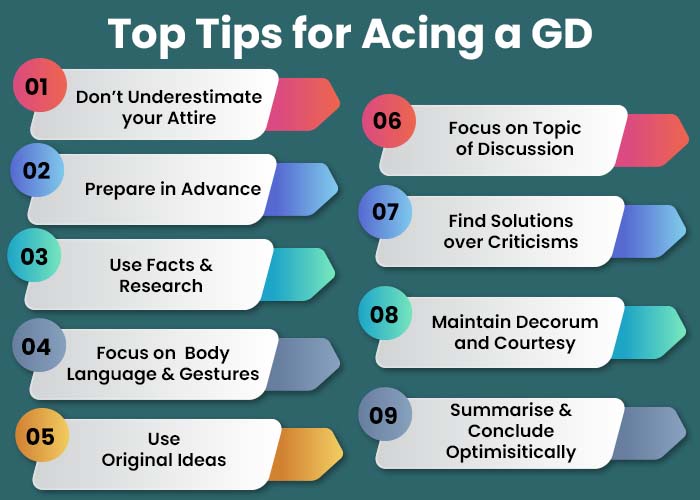
Process of a Group Discussion
If you are confused about how a GD actually occurs, here we have explained the process of a GD.
Firstly, a GD has the following main phases:
- Introduction of GD: a GD starts with the facilitator of the discussion introducing the topic of the discussion. In this phase, the members of the GD present their initial ideas about the topic.
- Central GD: This is the main part of the GD where the discussion includes the members putting forth their main ideas. During this period, the direction of the entire GD gets decided.
- Conclusion: the GD ends with the members concluding the discussion by providing their final thoughts. As already discussed above, at this stage, you can shine through by concluding the entire discussion by summarising the gist of the conversation and possibly suggesting some ending solutions or takeaways from the GD.
The process of a GD is discussed here:
- The GD begins with the facilitator introducing and welcoming the members of the GD.
- The facilitator then sets the agenda for the GD by introducing the topic for discussion. In some cases, the facilitator may give a brief lead to the group so as to give them a nudge in the direction to which they want to direct the conversation.
- Usually after the topic is introduced, the members are given a couple of minutes to jot down their major ideas and organise their thoughts before the actual conversation begins.
- Once the actual GD starts, members start presenting their ideas and hop in to put in new perspectives.
- Through the course of GD, the main ideas are presented in the conversations and different individuals emerge out differently from the discussion.
- As the GD draws towards its conclusion, the members present their final concluding thoughts.
- Once the GD is effectively concluded, the evaluators share the feedback based on the evaluations made during the conversation.
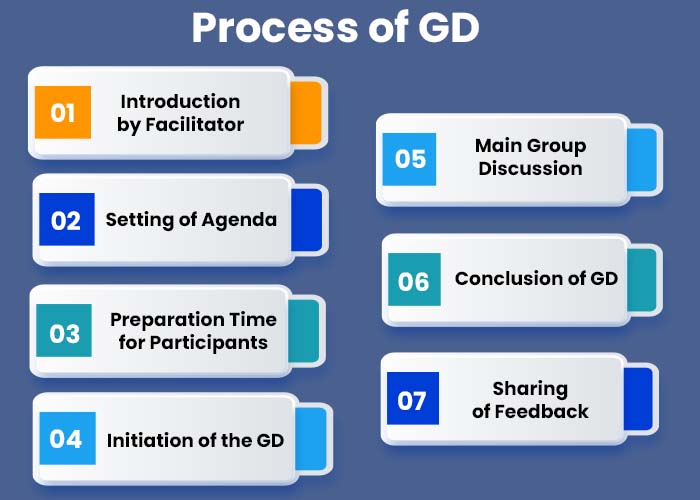
How is a Group Discussion Evaluated?
Here is your promised segment based on insights from our top counselors.
When you understand how a GD is evaluated, you can better tweak your skills and performance to effectively crack a GD.
Firstly, it is important to understand that how a GD is evaluated depends to a great extent on what the purpose of the GD is.
For example, the evaluation of a GD for a job interview involving a technical job role would have a primary focus on the technical knowledge of the candidate. On the other hand, the GD for a job role that involves a lot of interaction or communication, the primary focus of evaluation would be on soft skills such as communication skills, persuasion skills etc.
Based on a curated list of insights gathered from our experts at the College Vidya team, here we have listed down some of the most important skill areas that are evaluated in a GD.
- Knowledge: This is one of the primary aspects being evaluated in any GD, i.e. the depth of your technical knowledge in a field or your general knowledge. This is important if you are applying for a job role or educational course focused on hard skills and technical expertise.
- Creative & Original Thought: Many evaluators look for the originality in your thought process as well as creative ideas that you can contribute to the discussion. So it is important to present your own understanding and insights in a GD rather than following the cues of others or solely presenting the already established opinions and facts on the topic.
- Soft Skills: As already stated, the evaluation of a GD for a job role involving interaction and communication is focused on the various soft skills of the candidates. For example, major soft skills such as your social skills (ability to interact well with others, being attuned to others behaviours, intentions and emotions), communication skills, ability to listen, time management (e.g. how well you are able to articulate your ideas in the GD within a time frame), problem-solving skills, ability to work in the group, leadership skills etc. are often evaluated as well in a GD alongside your technical knowledge about the domain.
- Structure of Thought: Many evaluators also assess your structure of thought in a GD, i.e. how well your thought and analytical abilities are focused on the topic, whether or not you derail from the main agenda of the discussion and how logically structured or cohesive your thought process is.
- Analytical Skills and Critical Thought: While appearing for GDs that involve a managerial or business position, evaluators also take into account your analytical skills, critical skills, lateral thought as well as abstraction abilities, as these exemplify your ability to address new problems with an independent thought.
- Open-mindedness: This is also an important area. Evaluators also assess how well and constructively you are able to take the perspectives put forth by others, which in many cases may be contrasting your own viewpoints. It is an important area of soft skills as well, and while participating in a GD you should be able to calmly address counters to your viewpoint, and handle criticisms constructively.
- Digital Literacy & Future-Readiness: The more evaluators are prompting candidates to demonstrate their level of digital literacy and their familiarity with digital transformation and the role of AI in a dynamic workplace in the future. This encapsulates knowledge of digital trends, technology ethics, and future-oriented thinking of what work and society would call.
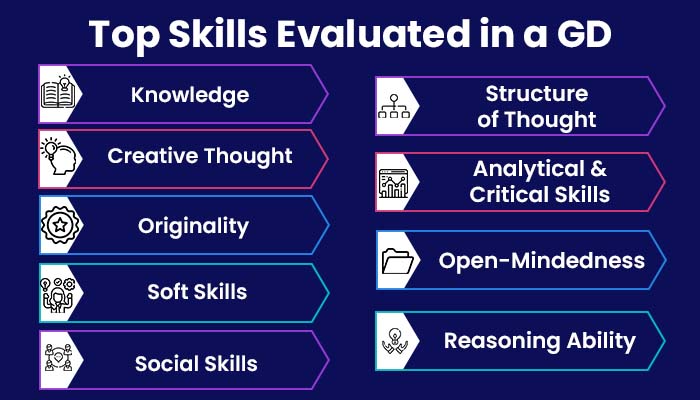
Common Topics of GDs
-
Artificial Intelligence and Its Effects
- AI inspection as decision reasoning
- RF replacement of human jobs instead of new possibilities
- ChatGPT and generative AI in the classroom
- Regulation and governance of AI
- Current affairs, Global issues
- Global warming and sustainable development
- Economic trends in the world and inflation
- Politics, international politics
- Online safety, security and surveillance
- Social Issues
- Mental health awareness in brisbane post-pandemic
- Workplace gender equality
- Digital gap and accessibility
- The impact of social media on society
- The use of Technology and Innovation
- Remote working and hybrid in the future
- Digital money, digital, cryptocurrency
- Advances in the technology of 5g and uses of 5g
- Cybersecurity challenges
- Economics and Business.
- Startups/ Startup ecosystem and entrepreneurship
- Green business activities
- The online stores vs the brick and mortar stores
- Digital payments and financial inclusion
- Quality Education and Skill Development
- The effectiveness of online education Vs offline education
- Skills needed in at the workplace in the future
- Lifelong learning, retraining
- The importance of digital literacy
- Medical and Fitness
- Digital health and telemedicine
- Preparedness of the health of the population
- Support systems on suggested mental health
- Healthcare accessibility
- Sustainability and the environment
- Energy transition
- Sustainable demands Sustainable consumptions
- City planning and smart cities
- Biodiversity conservation
Conclusion
So, GDs are fairly common today and you are very likely to face a GD at some point in your life be it due to educational or vocational endeavours. So it is important to understand the basics of GD as well as understand how one can easily ace a GD with confidence and a few simple practices. With confidence and a few simple steps, one can excel in a GD. Practice of communication in a group is another important aspect to be kept in mind.

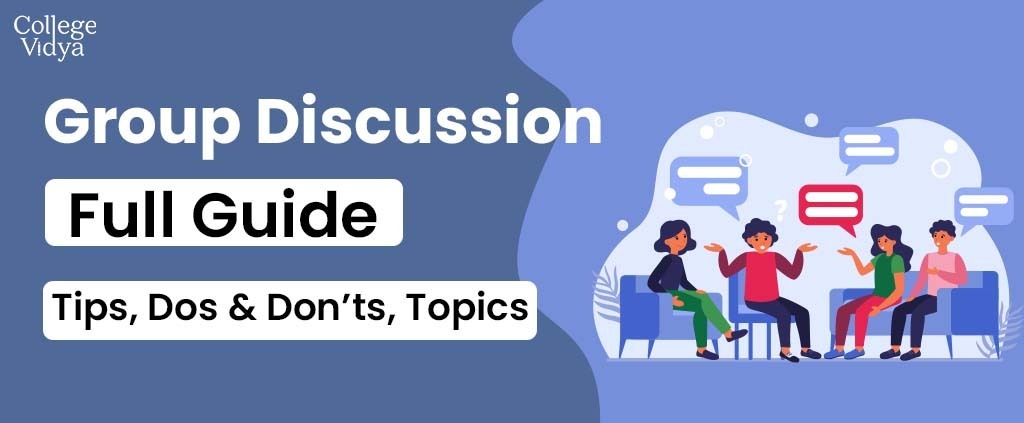





![What to Do After B.Des? [Career Options After B.Des]](https://d1aeya7jd2fyco.cloudfront.net/blog/Career_Options_After_Bachelor_Of_Design.webp)

![6-Month Courses [Certificate & Diploma Programs Online 2026]](https://d1aeya7jd2fyco.cloudfront.net/blog/6-month-certificate-programs-for-it-working-professionals.webp)
![Career Options After 10th [Types of Jobs, Salary, Courses]](https://d1aeya7jd2fyco.cloudfront.net/blog/career-options-after-after-10th-standard.webp)


